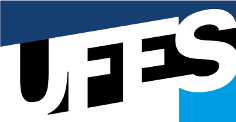HORKHEIMER, Max. Critical Theory. New York: Continuum, 1972._____. Between philosophy and social science. Cambridge: MIT Press, 1993._____. Teoria crítica I. São Paulo: Perspectiva, 1999._____. Eclipse da razão. São Paulo: Editora Unesp, 2015.ADORNO, Theodor; HORKHEIMER, Max. Dialética do esclarecimento. Rio de Janeiro: Jorge Zahar Editor, 1985.ADORNO, Theodor et al. La disputa del positivismo en la sociologia alemana. Barcelona: Ediciones Grijalbo, 1973.STRYDOM, Piet. Contemporary critical theory and methodology. London: Routledge, 2011.VOIROL, Olivier. Teoria crítica e pesquisa social: da dialética à reconstrução. Novos Estudos, n. 93, p. 81-99, 2012.WALZER, Michael. Interpretación y crítica social. Buenos Aires: Ediciones Nueva Visión, 1993.WEBER, Max. Ensaios de sociologia. 5a. edição. Rio de Janeiro: LTC, 2008._____. Metodologia das ciências sociais. 5a. edição. Campinas: Editora da Unicamp, 2016.BENHABIB, Seyla; BONSS, Wolfgang. On Max Horkheimer: New Perspectives. Cambridge: The MIT Press, 1993.DUBIEL, Helmut. Theory and politics: Studies in the development of critical theory. Cambridge: The MIT Press, 1985.BENHABIB, Seyla. Critique, norm, and utopia: a study of the foundations of critical heory. New York: Columbia University Press, 1986.YOUNG, Iris M. Justice and the politics of difference. Princeton: Princeton University Press, 1990.SAFATLE, V. P. Materialismo e dialéticas sem Aufhebung: Adorno, leitor de Marx, leitor de Hegel. Veritas, v. 62, p. 12-40, 2017.LÜBBER, H. Are norms methodically justifiable? A reconstruction of Max Weber’s reply. In: BEBHABIB, Seyla; DALLMAYR, Fred. The communicative ethics controversy. Cambridge: The MIT Press, 1990.HOY, Couzens; MCCARTHY, Thomas. Critical theory. Oxford: Blackwell, 1994.BERNSTEIN, Richard J. Praxis and action: Contemporary philosophies of human activity. Philadelphia: University of Pennsylvania Press, 1999.NUSSBAUM, Martha. Political emotions: Why love matters for justice. Cambridge: Harvard University Press, 2013.ALLEN, Amy. The end of progress: Decolonizing the normative foundations of critical heory. New York: Columbia University Press, 2016._____. The politics of our selves: Power, autonomy, and gender in contemporary critical theory. New York: Columbia University Press, 2008._____. The power of feminist theory: Domination, resistance, solidarity. New York: Routledge, 2018._____. The ethics and politics of progress: Dussel and the Frankfurt School. In: ALLEN, Amy; Mendieta, Eduardo (Eds.). Decolonizing ethics: The critical theory ofHenrique Dussel. Pennsylvania: Pennsylvania University Press, 2021. p. 167-181.ALLEN, Amy; Mendieta, Eduardo (Eds.). From alienation to forms of life: The critical theory of Rahel Jaeggi. Pennsylvania: Pennsylvania University Press, 2018.JAEGGI, Rahel. Critique of forms of life. Cambridge: Cambridge University Press, 2018.


